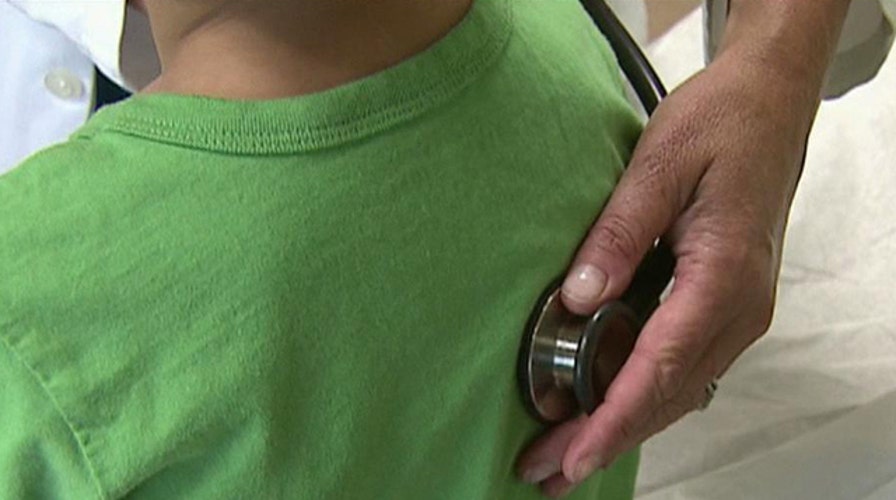Surgery, health insurer and one doctor's ObamaCare nightmare
A doctor says his office spent two hours on hold with a health insurer for a patient's surgery authorization
This is a rush transcript from "On the Record," January 6, 2014. This copy may not be in its final form and may be updated.
GRETA VAN SUSTEREN, FOX NEWS HOST: Are doctors going to get stuck holding the bag? A Chicago doctor says yes. Dr. John Venetos says ObamaCare's causing so much confusion that he's treating patients, even doing surgery, without knowing for sure if the patients have insurance coverage.
Dr. Venetos joins us. Nice to see you, sir.
DR. JOHN VENETOS, GASTROENTEROLOGIST: Thank you.
VAN SUSTEREN: So, tell me what happened. I understand that you had a patient who needed surgery, and so your office manager went to check to see if that patient had coverage?
VENETOS: Correct. A colleague of mine referred a patient New Year's Eve, and we contacted her -- she obtained insurance through the exchange, and although she had a card, she wasn't sure whether she was covered, wasn't sure whether she needed to have it pre-certified, and so we could not contact the insurance company on New Year's day. We started working on this on the 2nd, which was on Thursday. But we made her aware that we were going to treat her and take care of her, and regardless of whether there was going to be coverage.
VAN SUSTEREN: What effort did your office manager make? How long -- did she sit on hold? What did she do to try to identify whether your patient had coverage?
VENETOS: My office manager stayed on the phone 2.5 hours and could not get through because they were inundated by other calls, from I'm sure other payers and offices, whether there was coverage, so there's all that confusion out there.
VAN SUSTEREN: Now, did you know, is this sort of an anomaly? Did you happen to have one patient and your office manager sat on hold for 2.5 hours? Or are you hearing that other doctors are having this problem?
VENETOS: I mean, there's a problem here with the patients. Some have cards, some are not sure whether -- whether they signed up, whether -- they have not received the card. And so there's a lot of anxiety on their part in terms of coverage. For us, as physicians, you know, we're treating these patients, not knowing for sure. There's no way we can easily go in and -- on a website or to find out whether they have coverage. So it puts a lot more work on our staff to verify their coverage. And quite often they can't stay on the phone for two, three hours trying to verify this. We continue to see patients, hoping that eventually there will be coverage and we'll get reimbursed. It could be two, three months of doing things like this. And at some point, then I think the offices will have to reassess how long they can continue doing this. But at this point, we want to treat the patients.
VAN SUSTEREN: All right. Was this urgent, this surgery? Could your patient have waited two or three months? I'm not suggesting that she would want to or he would want to.
VENETOS: No --
(CROSSTALK)
VAN SUSTEREN: Is this something that the patient could have waited for?
VENETOS: Absolutely not. She -- she need to be cared for.
VAN SUSTEREN: And is the surgery done in an office or at the hospital? I'm wondering, I mean, if you're having trouble getting paid for your work, is the hospital get -- having trouble getting paid?
VENETOS: Correct. It's an outpatient procedure. And I think, as some patients become sicker and need more needs, the question be, who's going to accept the risks, not knowing whether or not they're going to get reimbursed. This will become a bigger issue I think as things evolve over the next two or three months.
VAN SUSTEREN: Do you have a sense it is going to evolve in the next two or three months? That's just a yes or no. And I've got to go?
VENETOS: Absolutely. I do agree. I think -- as time goes on, things will get more difficult.
VAN SUSTEREN: Doctor, thank you, sir.
VENETOS: You're welcome.

